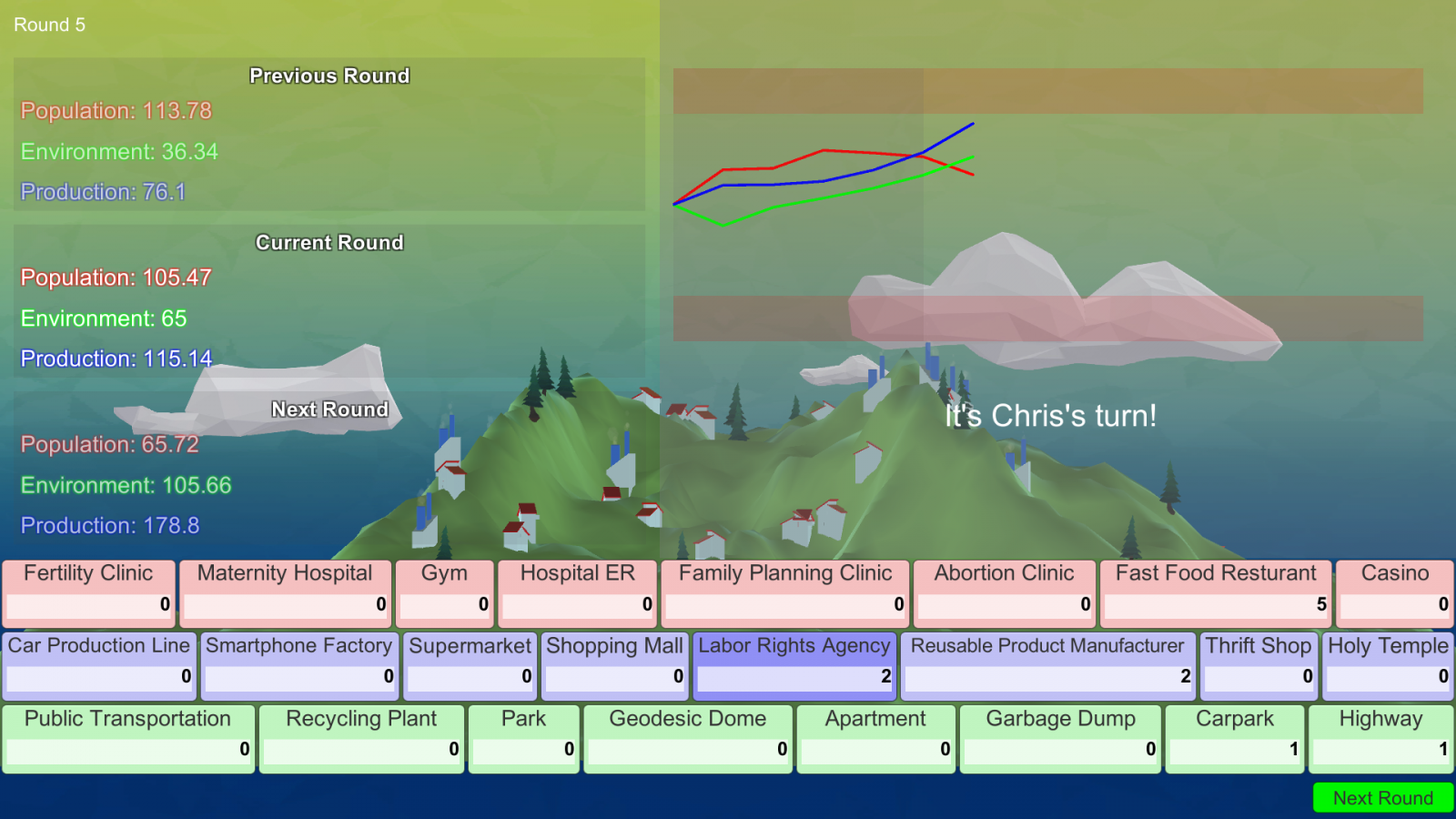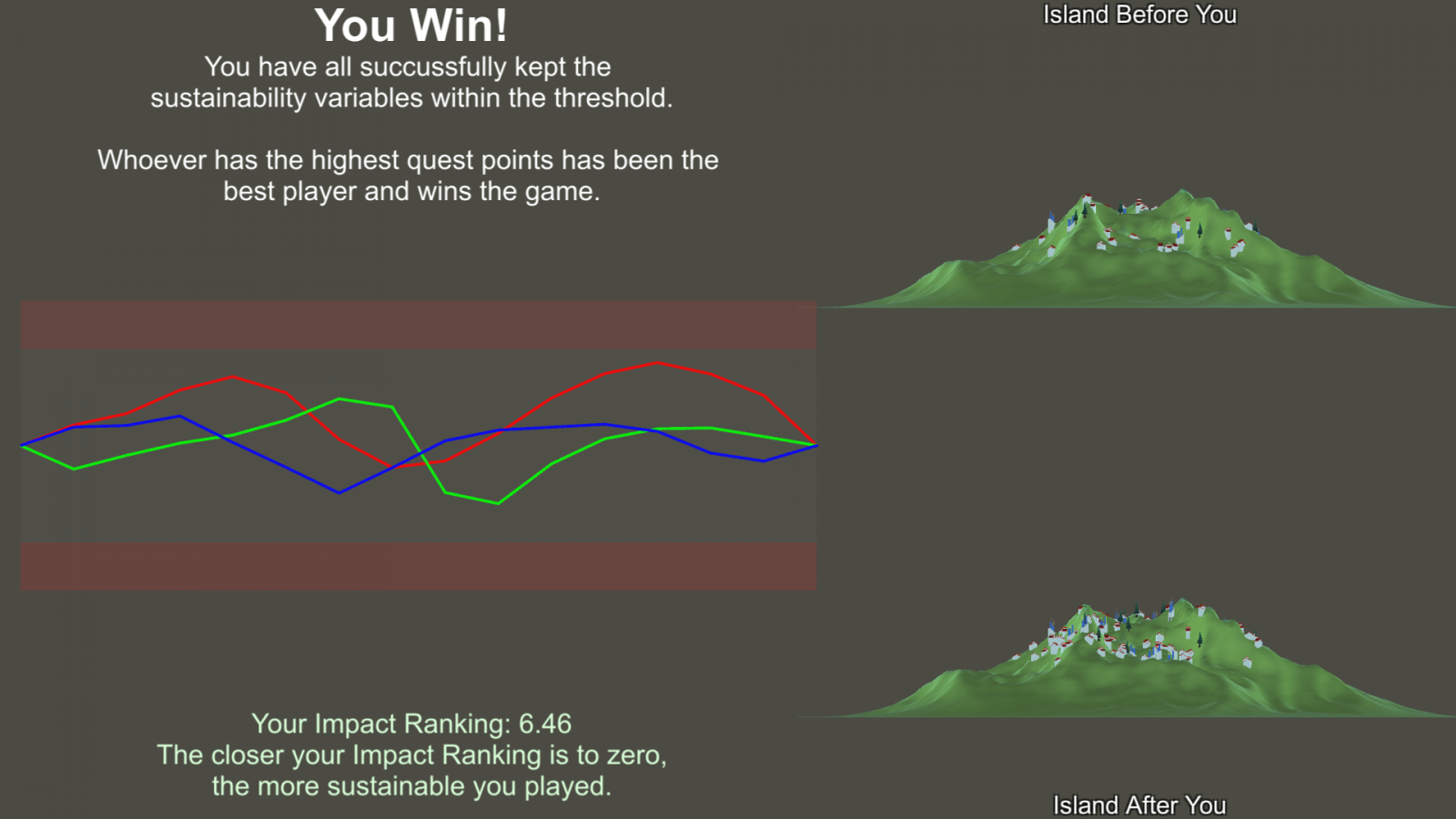Serious Games and Models for Sustainable Futures
This project is an initial step towards a collaborative endeavour into exploring potential sustainable futures and the transitions towards them from current socio-economic practices. More specifically, this topic is to be explored through a combination of systems modelling and game design, incorporating models of transition into “serious games” to both engage the wider community with the issue in an entertaining manner, and to collectively discover and validate potential scenarios for transitioning to a sustainable future through player interaction, as well as improve our understanding of players’ motives and preferences.
Background
There are various visions of our future, but most agree that life will be substantially different in the post-fossil fuel era. Eroding ecosystems, the end of cheap oil and climate change all call for new policies to support societal transformations toward low-carbon alternative futures. However, we are still unclear what these futures may look like and how we can transition to them. Serious games connect a serious purpose to knowledge and technologies from the video game industry. Serious games are closely related to simulation - they often contain a model of an existing reality defined as a system and its interactions. They offer a great opportunity for participatory modelling and can be also used for crowd-sourcing the collection of information about citizen mental models and stakeholder behavior.

Last Island - The Game
"Last Island" was designed as a prototype sustainable futures game to explore how system dynamics models can be embedded in a gaming environment. The game is based on a version of the Miniworld model, which describes the dynamics of human population, economic development and state of environment, and generates outputs somewhat similar to the Limits to Growth scenarios. The simulation model was embedded into the Unity gaming environment, and was combined with a board game, in which players are to draw cards that change certain model parameters and therefore generate different future outcomes. It was quite challenging to maintain the logic and realism of the simulation, while making the game sufficiently exciting and entertaining to keep the attention of the players. While the developed prototype certainly needs further refinement, it already proved to be useful for several learning outcomes, demonstrating that:
- Sustainable scenarios are hardly possible unless some cooperative strategies emerge;
- There is a conflict between group success and maximizing scores of individual players;
- The system often behaves in counterintuitive ways due to non-linearities and delays in the model;
- The system sensitivity to various actions chosen is quite uneven, requiring some adaptation of strategies and 'on the fly' experimentation during the game.


Rules and Resources:
Publications
- The last island (UTS U-Mag)
-
Workshop on Agents and Models in Serious Games for Change and Social Good (at the Intelligent Virtual Agent Conference 2018)
-
Last Island: Exploring Transitions to Sustainable Futures through Play (at Interactive Entertainment, as part of the Australasian Computer Science Week 2019)
Team
- Firouzeh Taghikhah
- George Mitri
- Sebastian Du Toit
- Dr. William Raffe
- Dr. Jaime Garcia
- Prof. Alexey Voinov
Support
This project was funded by the Spring 2017 BlueSky Grant Scheme from the UTS Faculty of Engineering and Information Technology .
The project was conducted jointly by the Centre on Persuasive Systems for Wise Adaptive Living (PERSWADE) and the UTS Games Studio .

